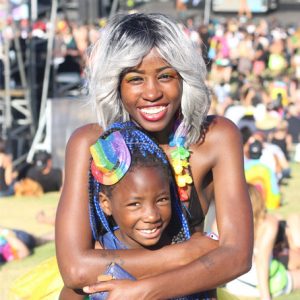What is Pride?
LGBTQ Pride Month, or Pride as is widely known, is celebrated nationwide every June. LGBTQ Pride Month was established to commemorate the Stonewall Riots, which occurred on June 28th, 1969 when police raided the Stonewall Inn, a gay bar in Manhattan. LGBTQ people protested police violence and institutional discrimination that night and for the months following.
The first Pride March in New York City was held one year to the day after the riots. It was called “Christopher Street Liberation Day” and was held on June 28, 1970. Though the Stonewall Riots were one watershed moment in LGBT history, LGBT resistance to societal discrimination has a long previous history and continues into the present.
Source: https://www.loc.gov/lgbt-pride-month/about/
In San Diego, Pride and Trans Pride celebrations are held in July.
What do the letters mean?
The acronym LGBTQ stands for Lesbian, Gay, Bisexual, Transgender, and Queer. Over time the acronym has evolved to encompass more sexual and gender identities.
- LGBTQIPA2+:
- Lesbian
- Gay
- Bisexual
- Transgender or transsexual
- Queer or questioning
- Intersex
- Pansexual
- Asexual, aromantic, or androgynous
- 2 (or 2S) Two-spirit
- + other identities not named
Source: Outright International
There are many other acronyms used by the LGBTQ+ community, such as QTPOC, which stands for Queer and/or Trans People of Color. Terms are always evolving in order to better reflect the experiences of different members and groups in the community.
Why are there pronouns in my coworker’s email signature?
Not everyone uses the personal pronouns associated with their sex assigned at birth or the gender others assume they are. In addition, some people use “non-traditional” personal pronouns, such as singular they/them. Sharing one’s pronouns creates a safer space for transgender, nonbinary, gender expansive, and questioning people by normalizing not assuming others’ pronouns. It is one way cisgender people can be allies to transgender community members.
The County of San Diego adopted Policy No. 120 regarding the use of pronouns in April 2021. You can read more about it and explore the policy itself here: New Pronouns Policy — County of San Diego InSite News (sdcountynews.org)
More information
LGBTQ+ Resources from San Diego County Library



Add a comment to: What is Pride? A Short Q&A